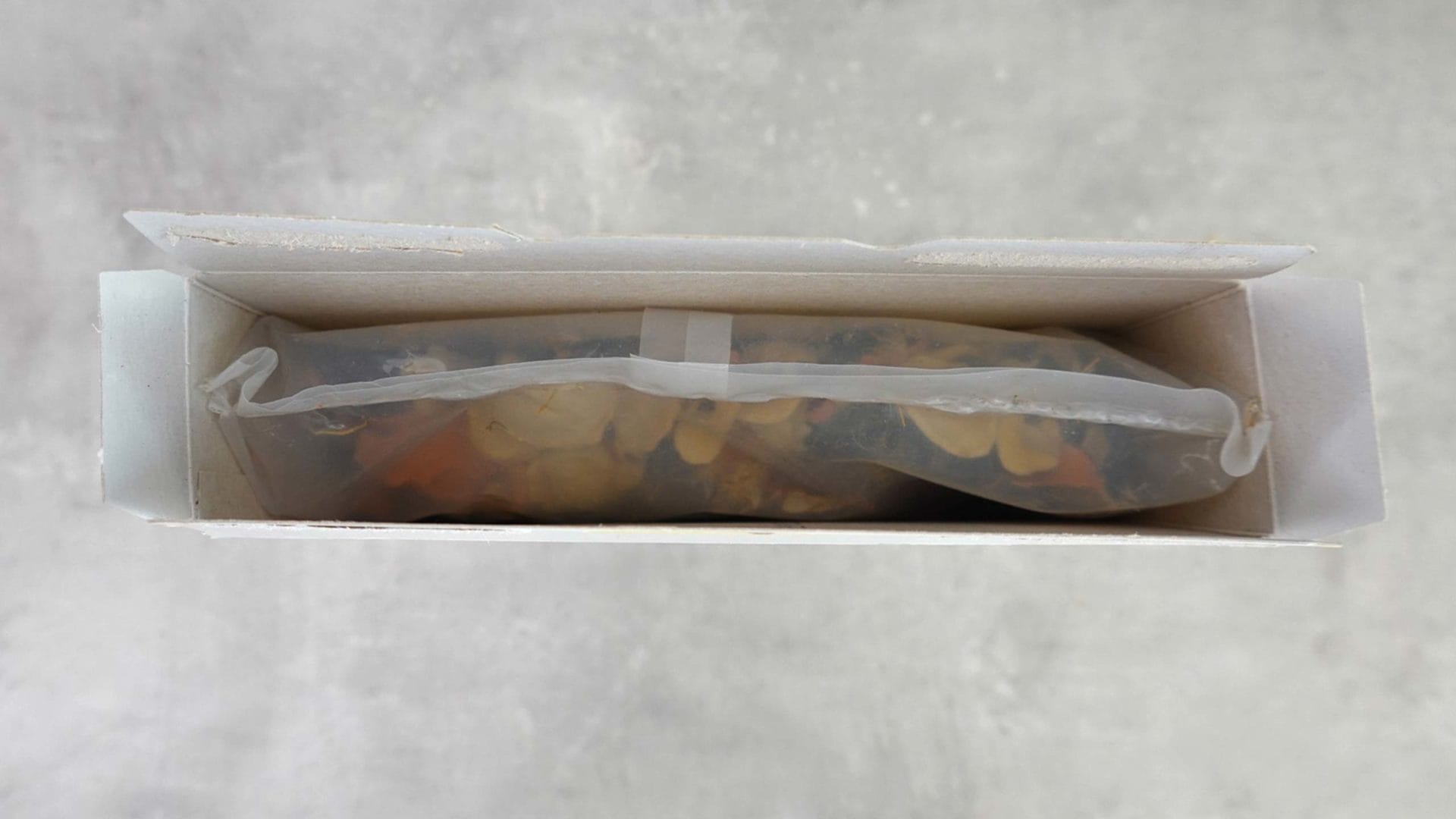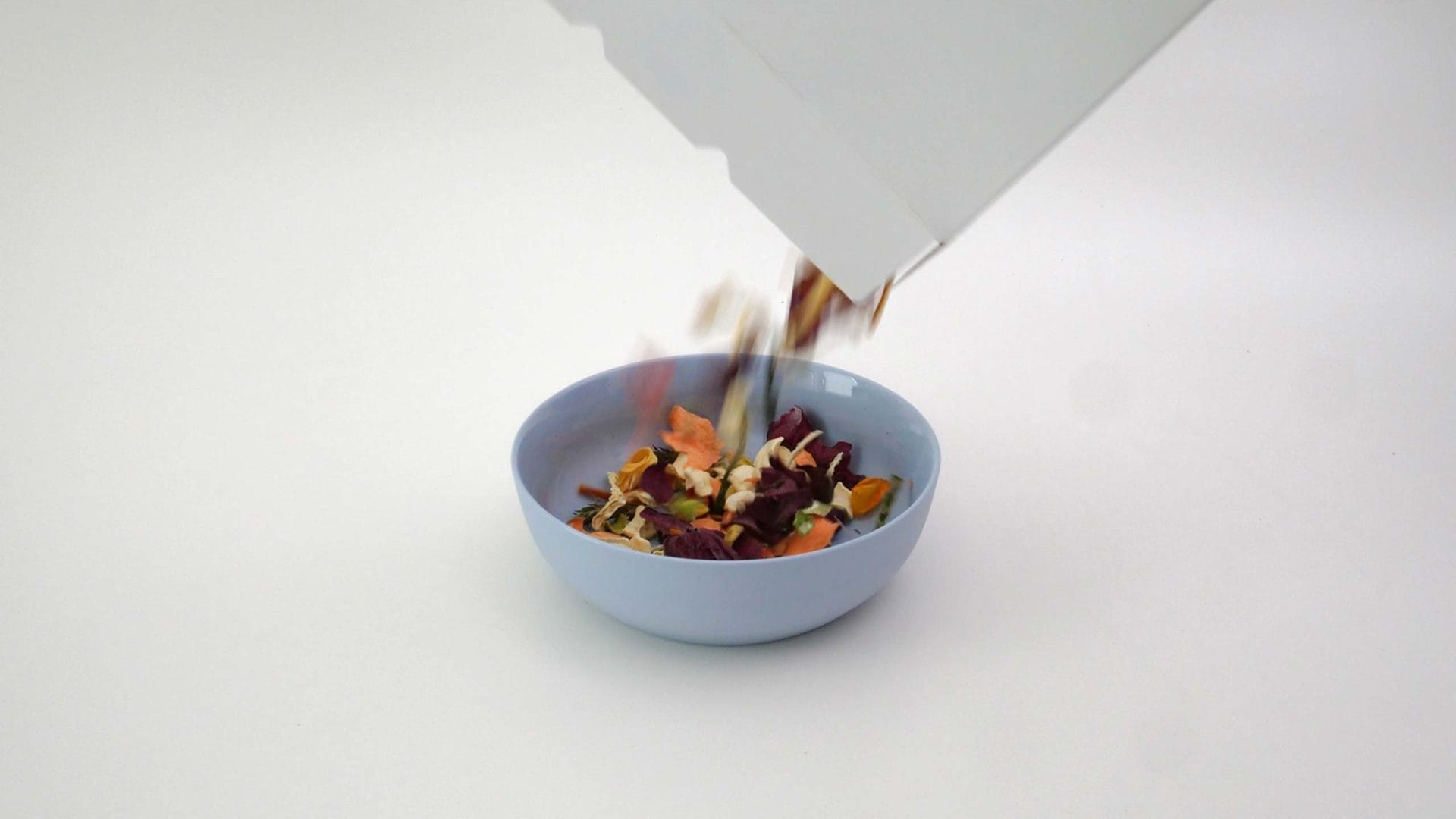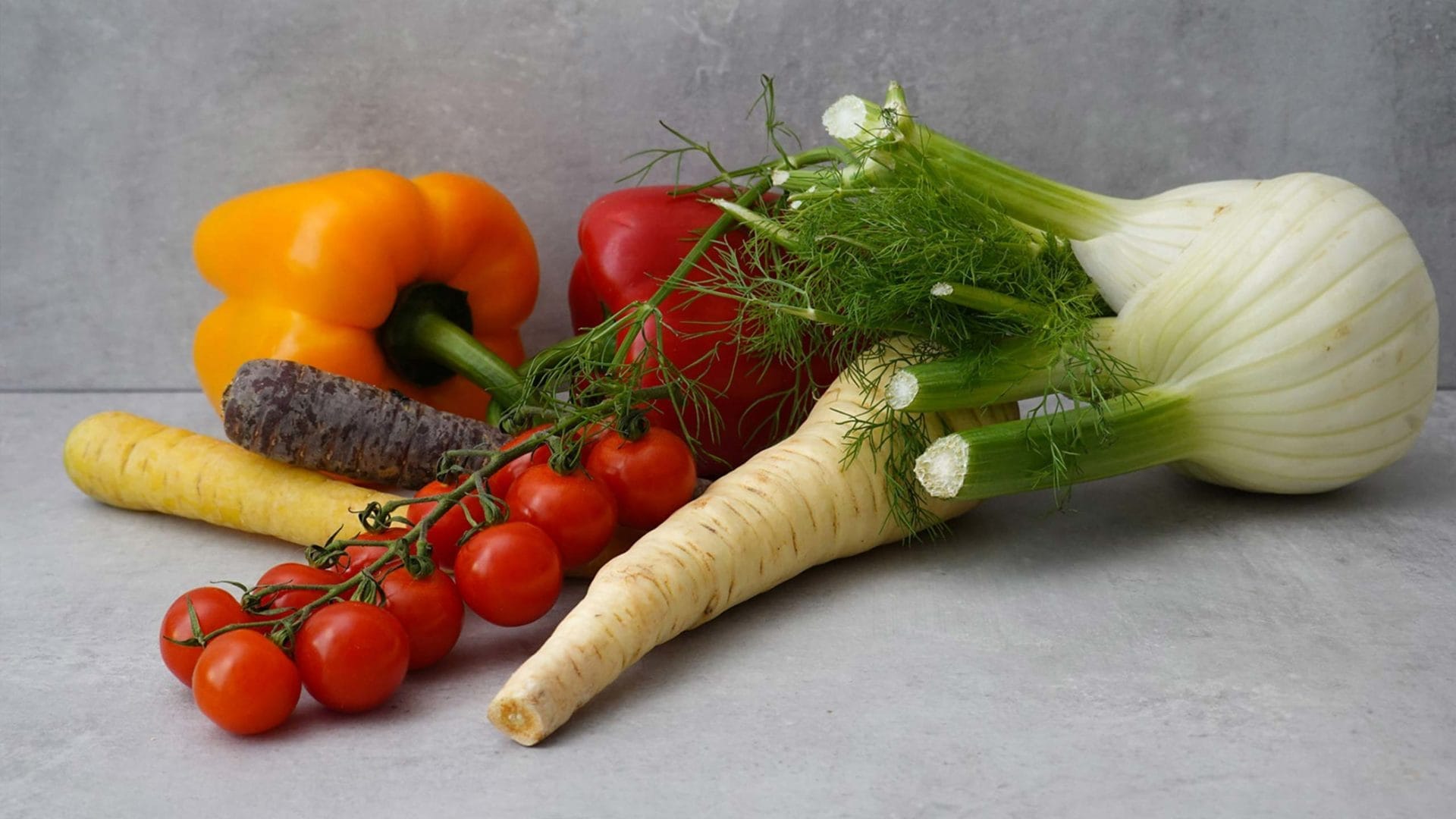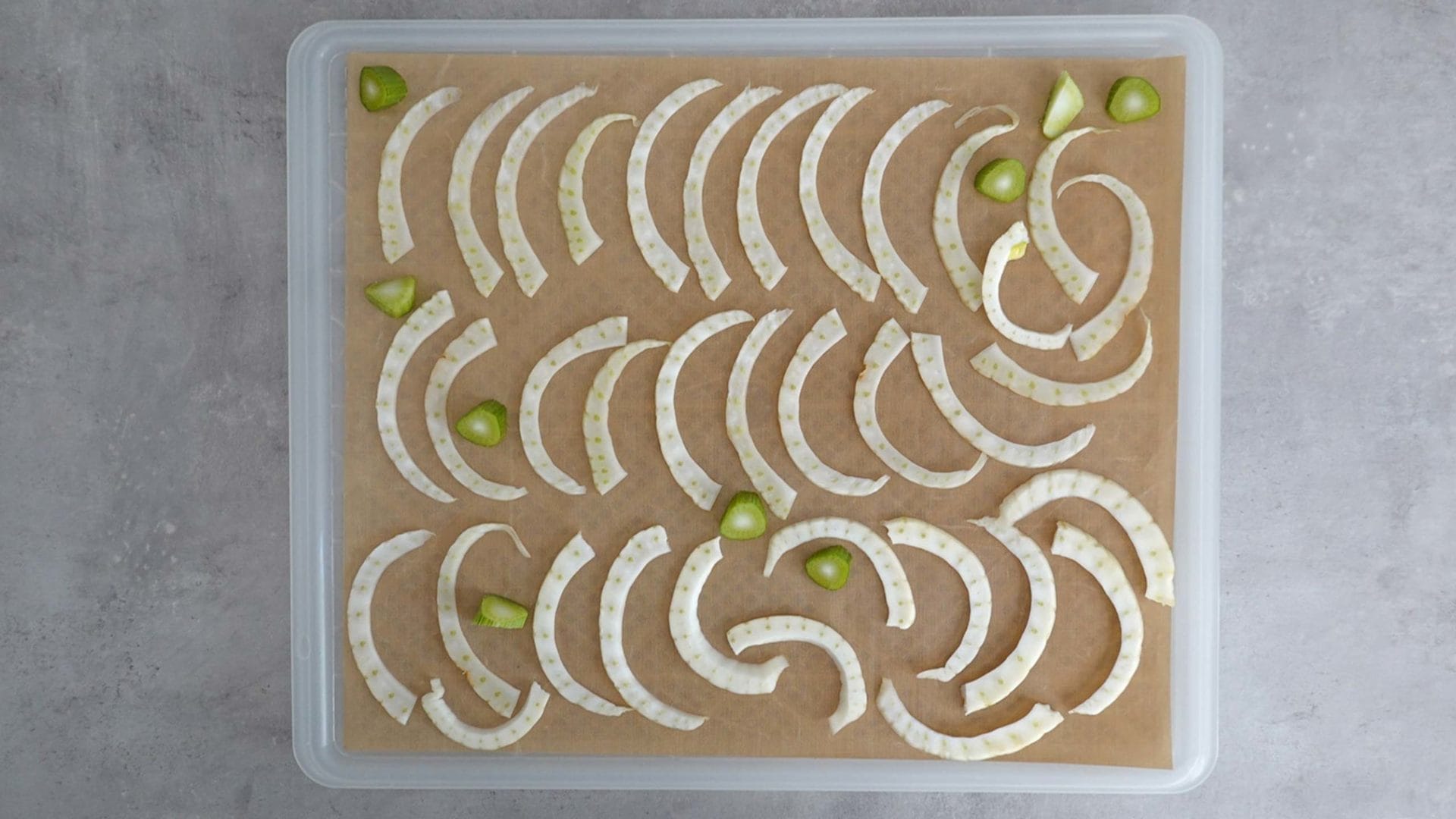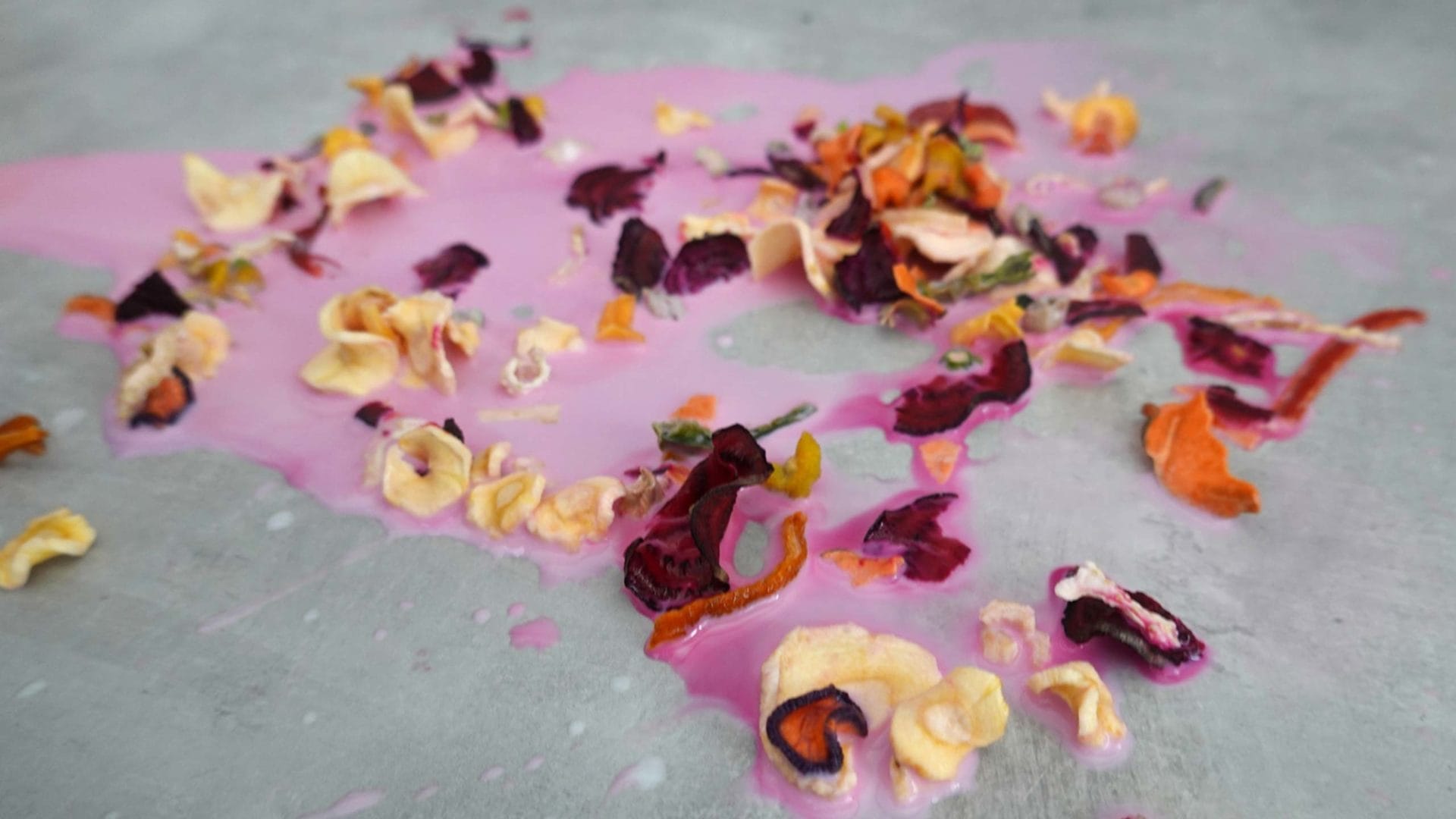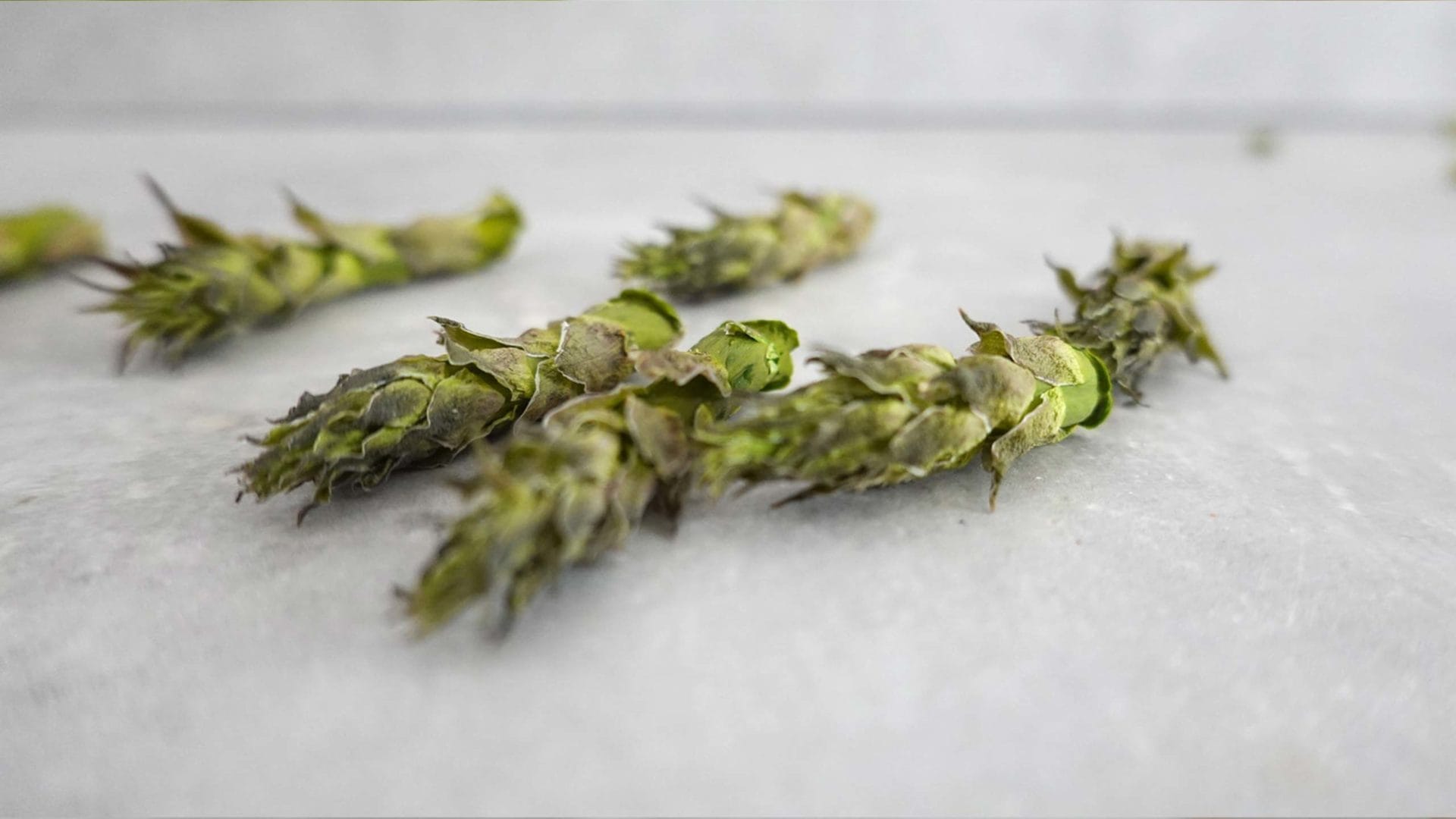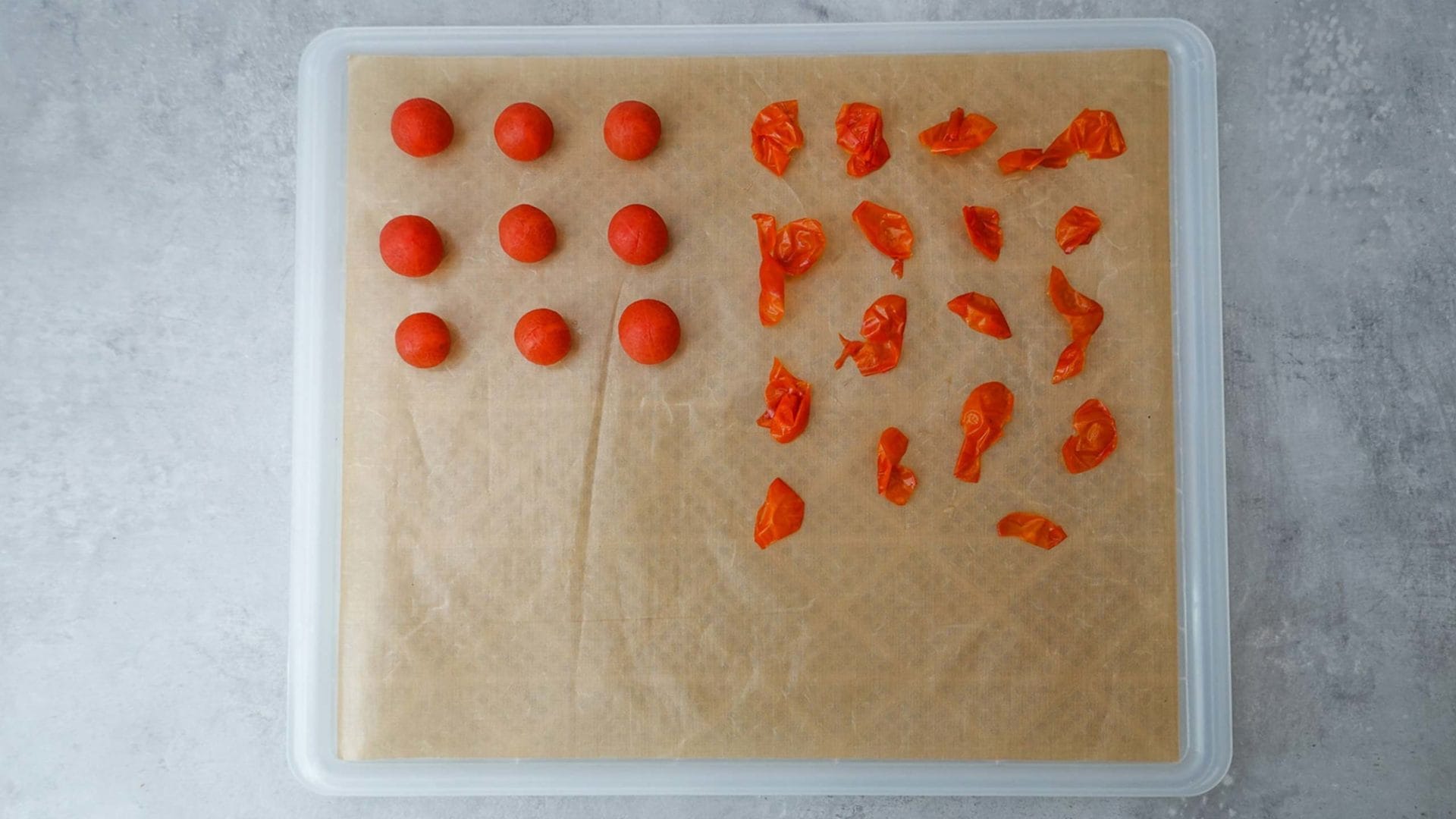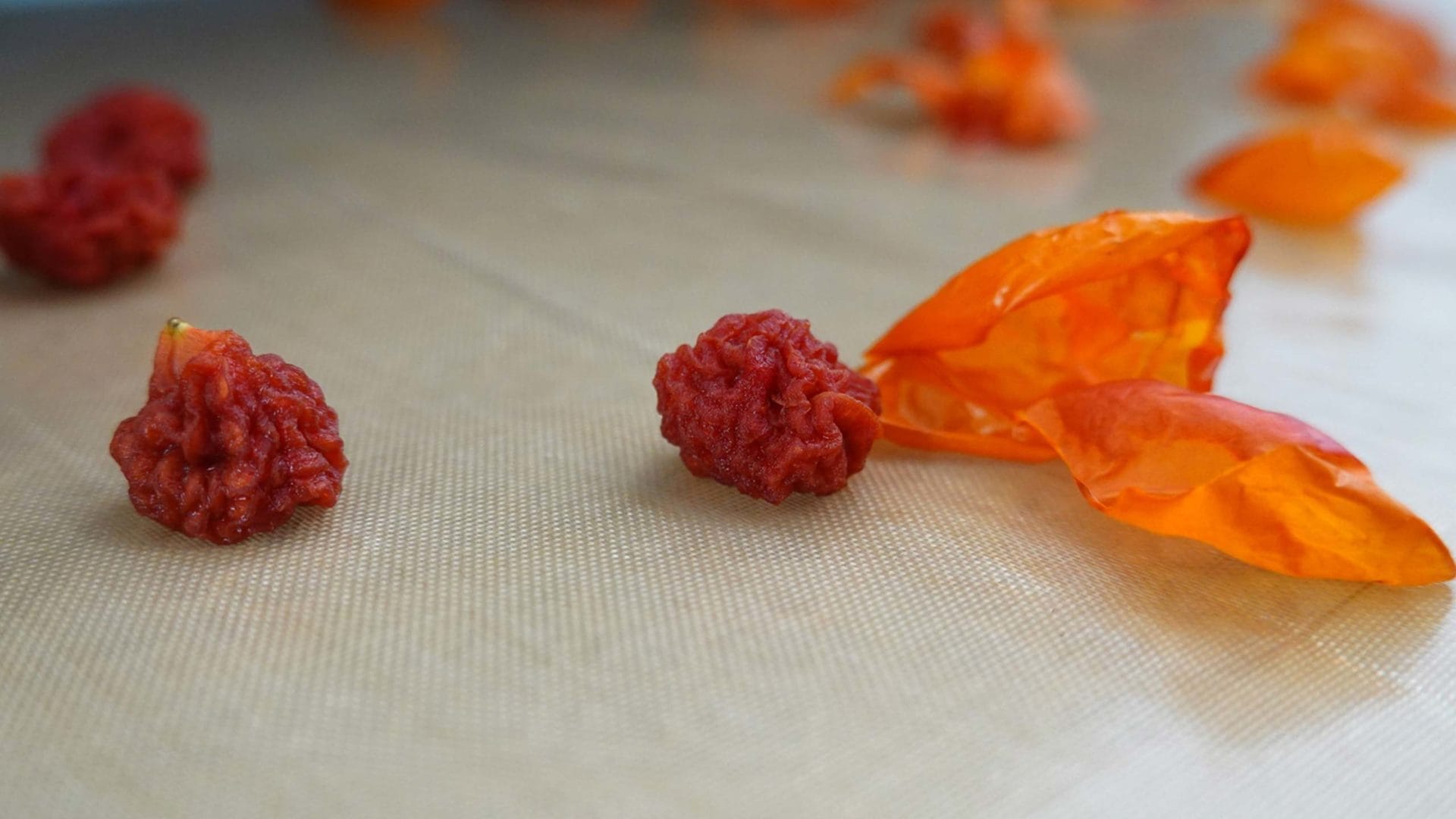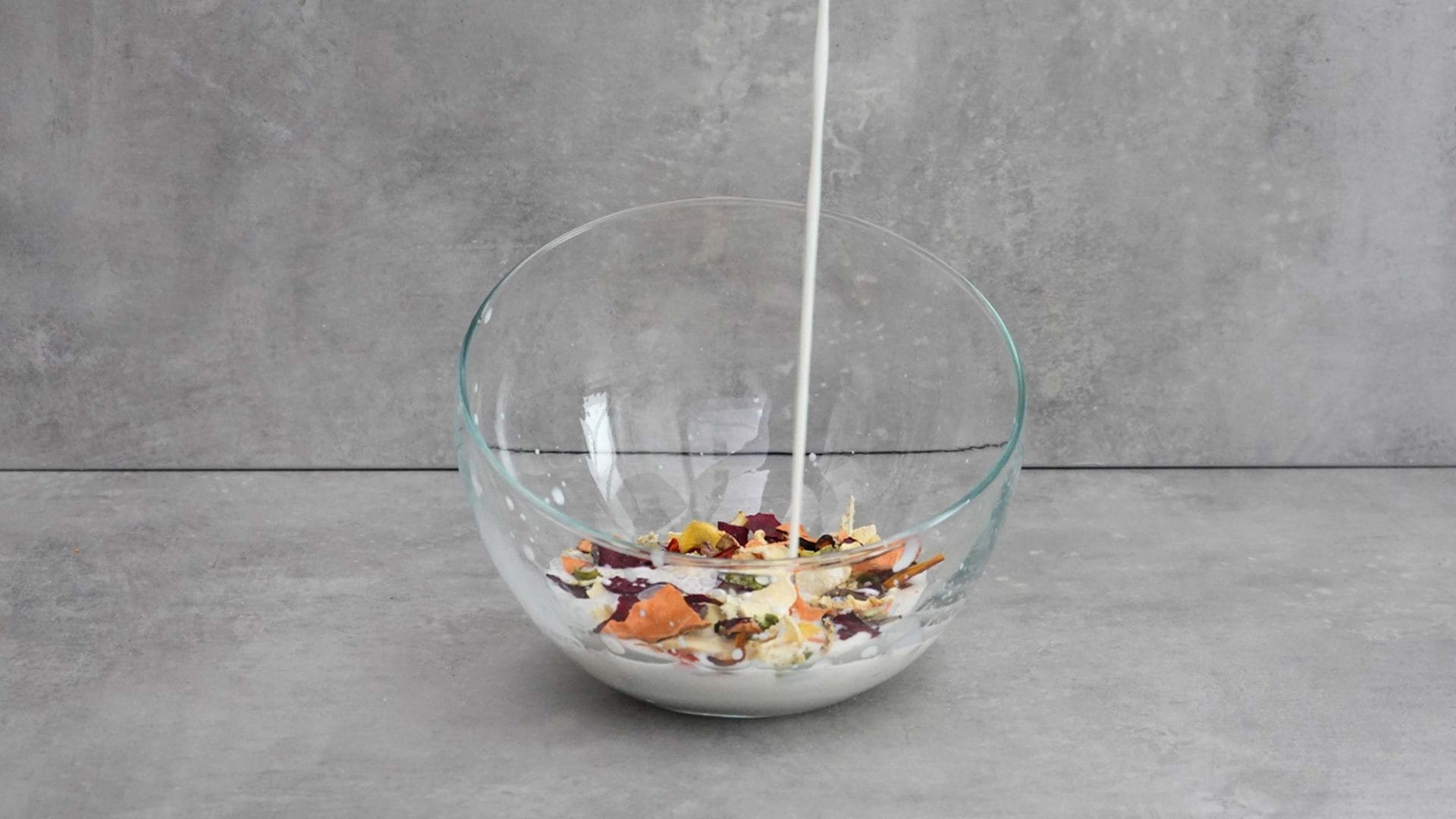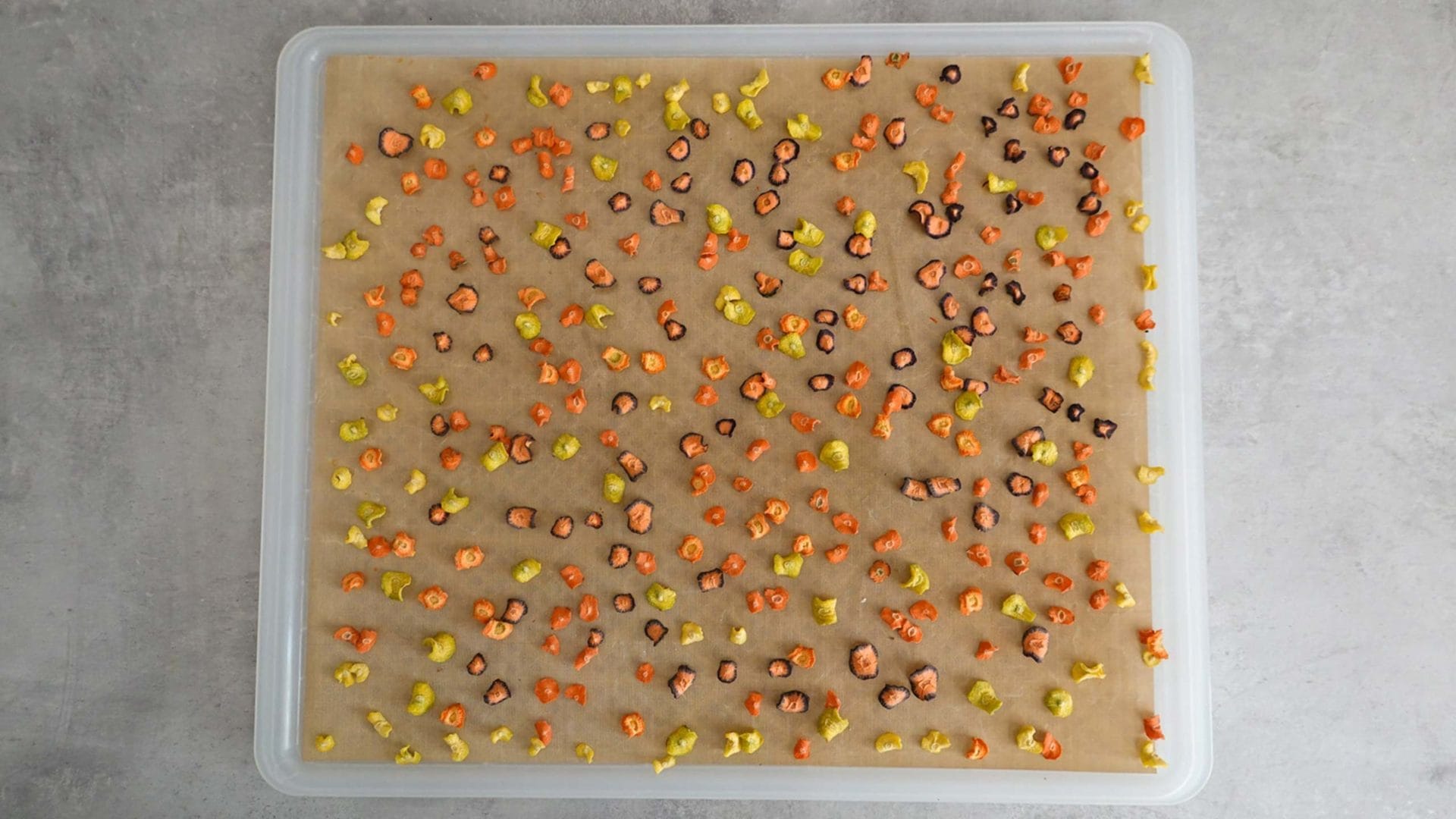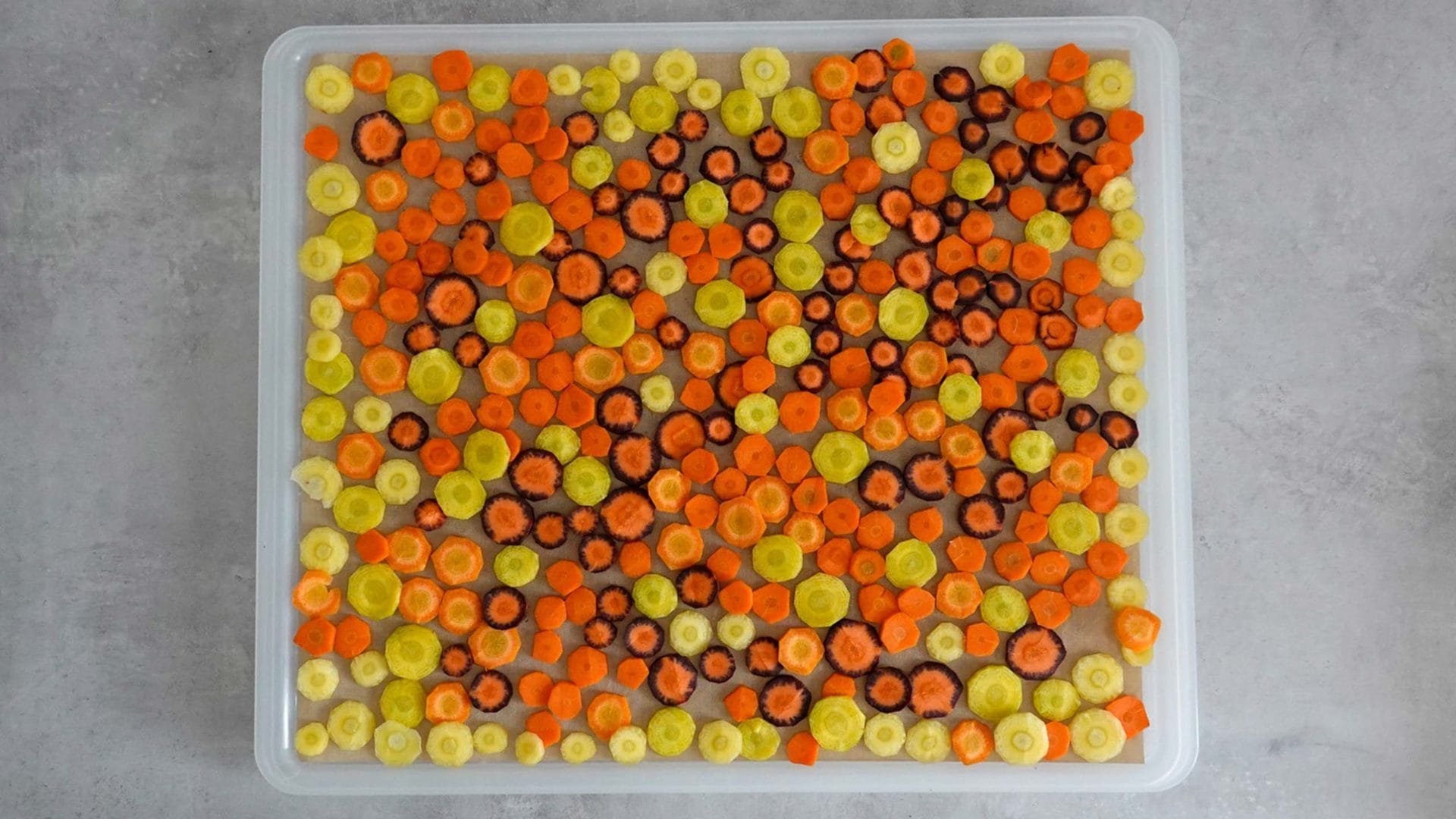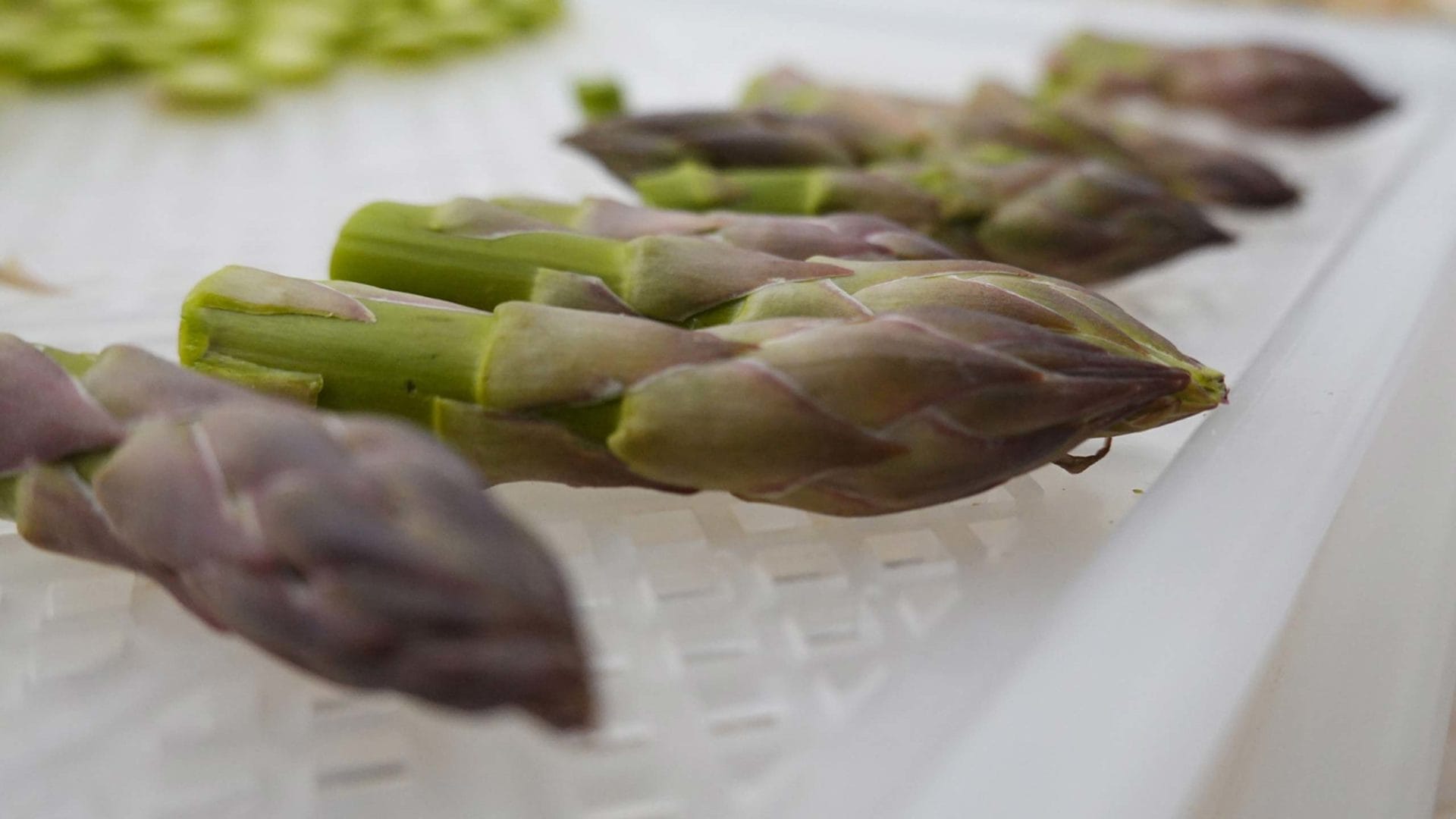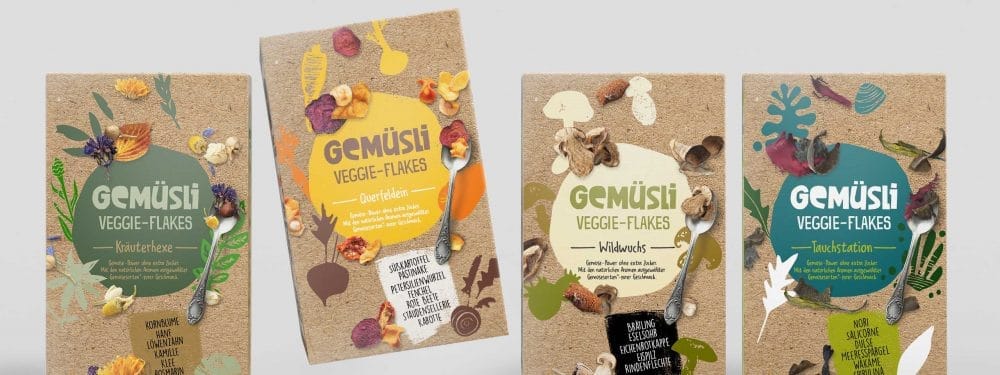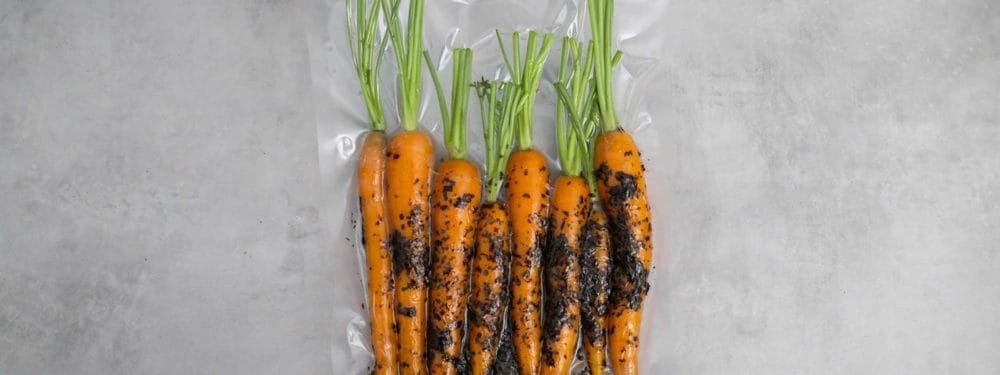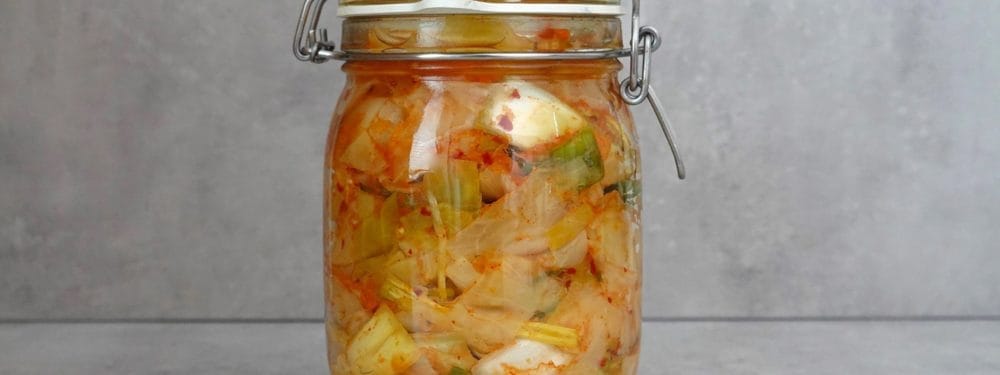Vegetables
Half past nine in the morning in Germany. For many of us, that used to mean starting with cereal. Corn flakes, smacks, pops, cinnamons … there’s an endless supply.
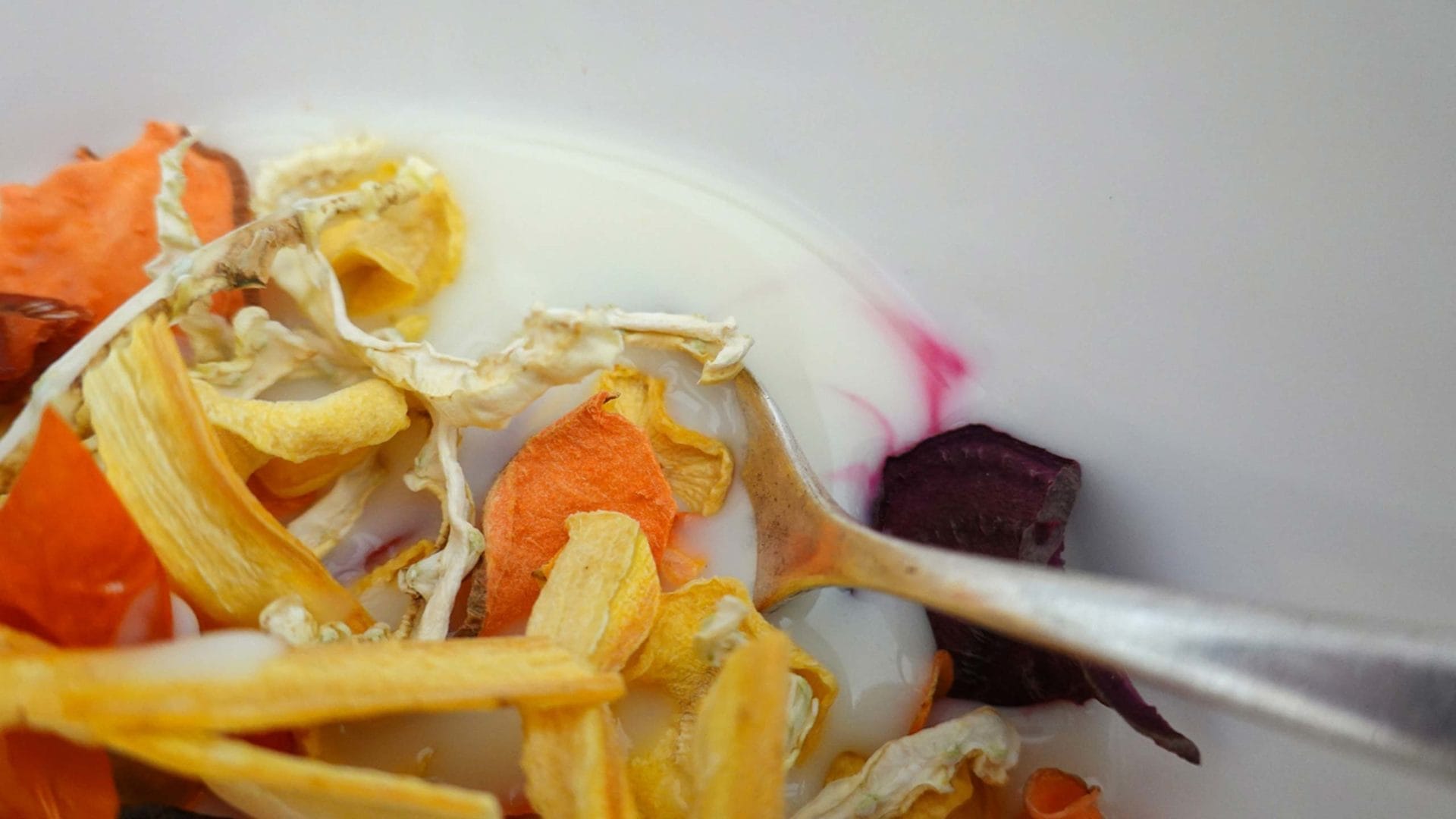
Corn Flakes 2.0
Crispy, very sweet, crunchy at the beginning and then soft and soaked with milk. This evokes nostalgic feelings, but most people have probably landed on a slightly healthier cereal by now. Current consumer figures also see mueslis ahead of traditional cereals.
But why not rethink the good old breakfast cereal and adapt it to today’s requirements – a healthy snack? Vegetable “corn flakes” sounds healthy. It is. But don’t worry, it tastes surprisingly good and looks even better. So good, in fact, that chefs such as Heston Blumenthal and Thomas Bühner have already served such mueslis in their restaurants.
Vegetable Power
Our vegetable muesli – “corn flakes” are made without extra sugar, the natural sweetness, acidity and bitterness of the vegetables are then in the foreground. To do this, we extract all the water from the vegetables, so we make crunchy flakes with the concentrated flavor of the vegetables, which comes out perfectly when combined with cow’s milk or oat milk.
We have chosen the following vegetables. Without any additives, they contain many important vitamins such as A, B, C, E, potassium, magnate, lycopene, essential oils, bitter substances, iron, folic acid, flavonoids and fiber.
– Parsnips
are slightly reminiscent of celery in smell, but when they are cooked or, as in our case, dried, they take on a slightly nutty-sweet note and are therefore a perfect substitute for the corn variant. They contain many carbohydrates such as sugar, starch and the swelling agent pectin. This strengthens our nerves, has an antibacterial effect and is good for the heart.
– Parsley root
Contains vitamins, trace elements, essential oils, vitamins and aromatic substances. The leaves of the parsley root are similar to the smooth cut parsley. They have a very spicy taste.
– Celery
Contains a lot of magnesium, sodium and calcium, stimulates the metabolism and has a fresh taste.
– Tomatoes
are real boosters, strengthen eyesight, can prevent cancer and reduce the risk of stroke. Provide valuable lycopene, of which darker tomatoes contain more than lighter ones and prevents high blood pressure.
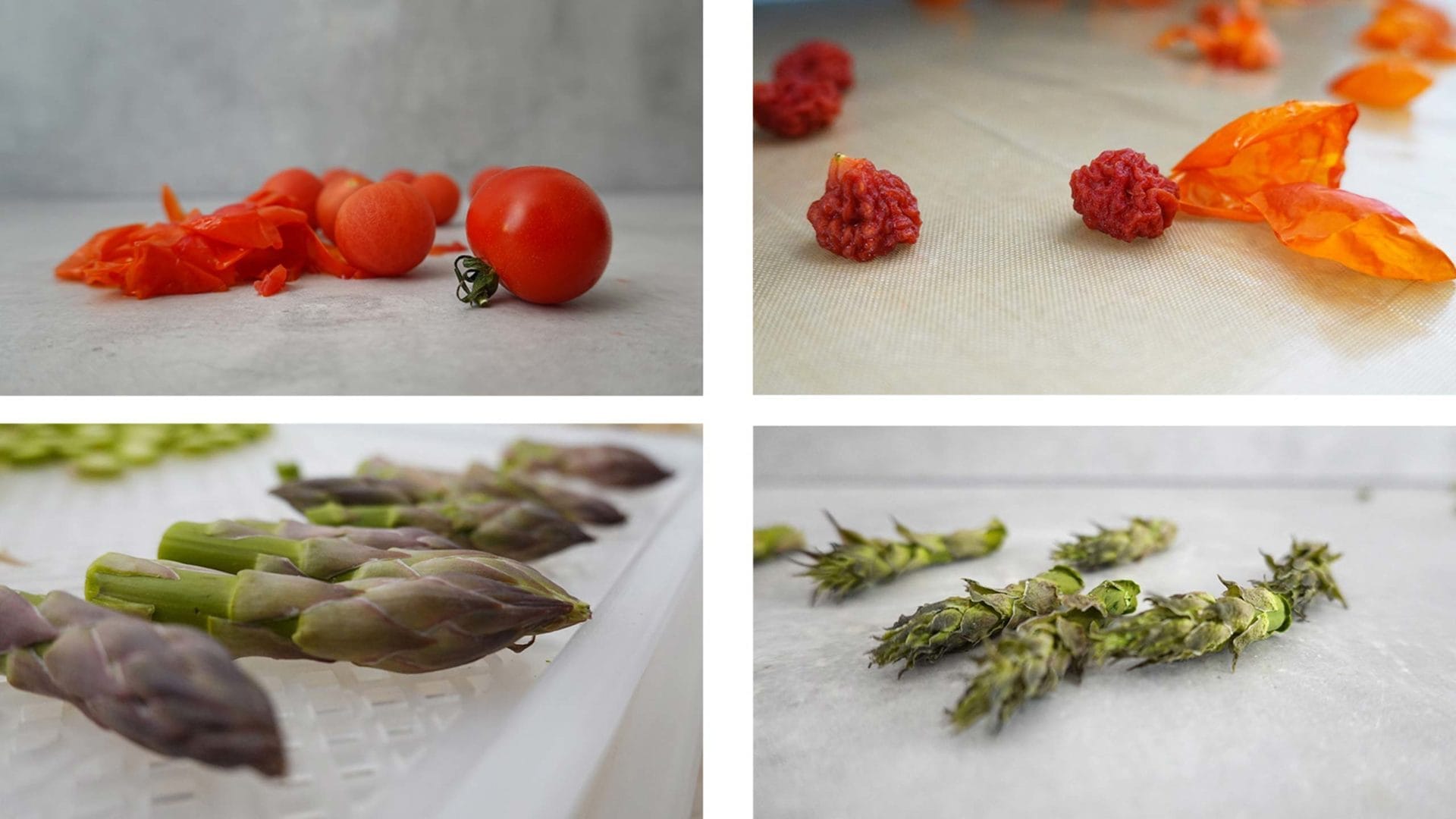
– Green asparagus
Purifies the blood and contains a lot of folic acid. Unlike white asparagus, it also contains a lot of vitamins A, C, K and E.
– Beet
Is good against high blood pressure and has an anti-inflammatory effect. Contains nitrate, which can improve performance during sports, protects body cells and inhibits inflammation.
– Fennel
is an all-round performer, promotes blood formation, strengthens the heart and nerves, the essential oils anethole, fenchone and menthol are effective against stomach complaints. It is rich in vitamin E, vitamin A, vitamin C.
– Carrots
strengthen our eyesight, they contain a lot of beta carotene, which the body converts into vitamin A. The carotene also makes the skin more beautiful.
– Rhubarb
Contains a high concentration of malic and oxalic acid, a larger amount can have a laxative effect, but at optimal doses it aids our digestion.
– Sweet potato
Provides many vitamins, calcium, zinc, folic acid, potassium, magnesium, is rich in fiber, its beta-carotene content is almost as high as that of carrots. They contain a certain amount of starch.
– Paprika
Contains vitamin A and is good for the eyes, skin and prevents diabetes. Furthermore, it helps burn fat and strengthens our immune system.
– Dandelion flowers
Also contain numerous vitamins and minerals
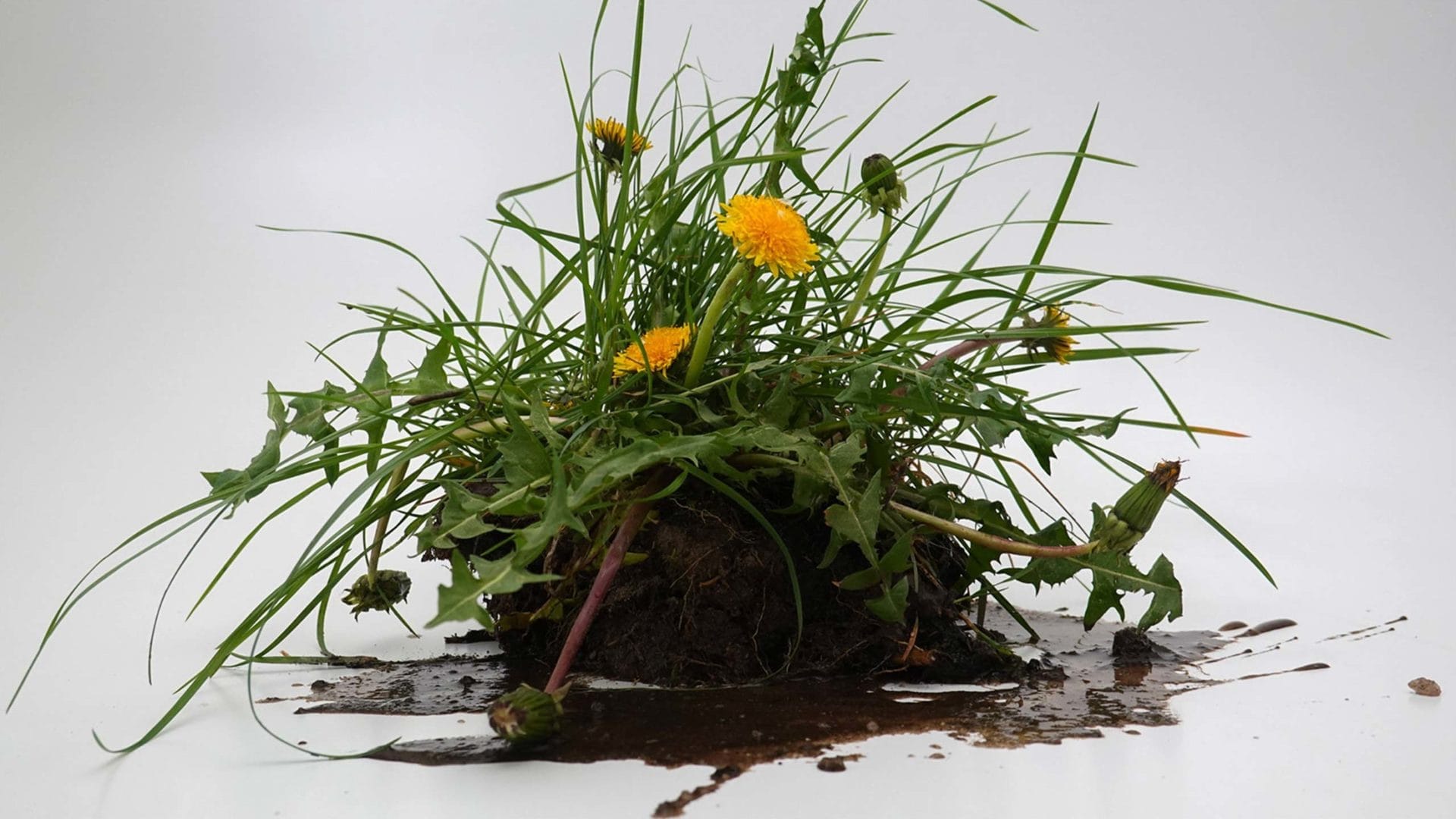
What sounds like the package insert of vitamin supplements are the natural ingredients of our vegetable muesli flakes!
From vegetables to flake
For this we wash carrots, parsley roots, parsnips, fennel, beet, sweet potato and celery and slice them into slices about 2-3 mm thick. For the peppers, we take a Bunsen burner and blacken them from the outside, then the skin can be easily scraped off with a knife. Cut the tomatoes crosswise on the bottom, blanch them (dip them briefly in boiling water) and rinse them in ice water. Thus, we can remove the skin very easily here as well. This we dry extra so that it also becomes nice and crispy. We clean the dandelion flowers only lightly with a brush. We peel the rhubarb and then cut it into 2-3 mm thick slices. We dry the prepared vegetables at continuous 50°C for 8-15 hours in the drying oven. Due to the low temperature, many vitamins and minerals are preserved. Up to 42°C, vegetables treated in this way are still considered raw food.
Our flakes have hardly any calories but are full of flavor and the bright colors make you almost as awake as a black coffee. We already liked this first batch very much. Not necessarily every day but not only in the morning. These flakes can be used in a variety of ways and can become an appetizer with a flavored crème fraîche or add color, texture and vitamins to a main course like a risotto. They are also perfect as a light snack.
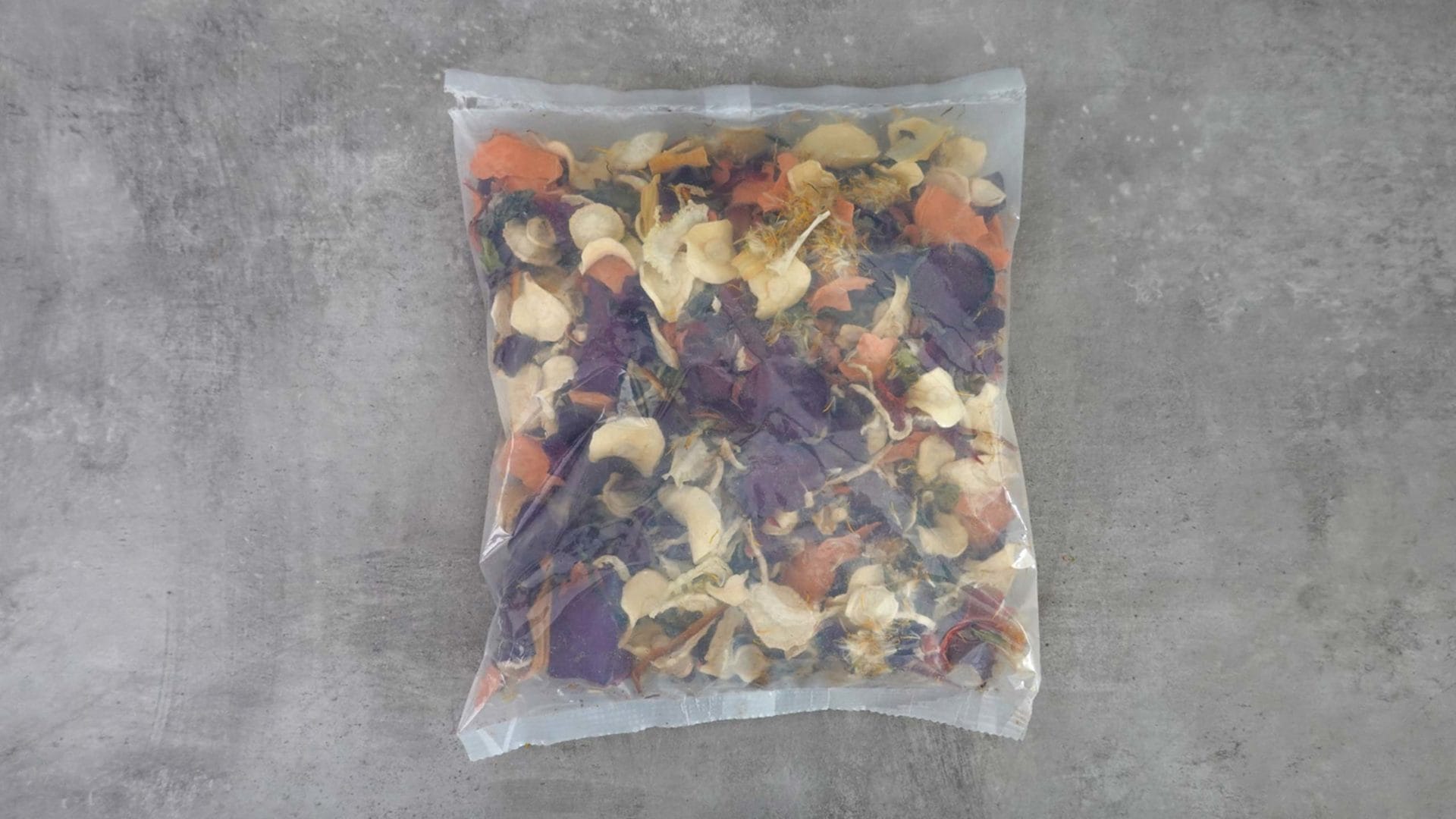
Variant: Forest, meadows, sea
As for the variations, you can play endlessly with additional elements: whether with fruit or cereals: puffed rice, toasted buckwheat, oat flakes or millet flakes, the transition from vegetable flakes to vegetable muesli is then fluid.
Particularly exciting could be themed varieties such as forest (with mushrooms, lichen and wild berries), meadow (flowers, leaves, herbs) or sea (with various seaweeds such as nori or dulse), or seasonal varieties such as asparagus, strawberry and rhubarb.
You could also serve your own “vegetable milk” mixed or single variety, simply boil vegetables in milk (vegetable or animal), releasing flavor and color.
The small hook
Healthy and delicious, what could be a better start to the day? However, our vegetable muesli has a catch, because to make a decent amount it needs a lot of vegetables. This is because it consists mainly (around 90%) of water, and it is precisely this that we extract during production. So the flakes are quite high-priced. There is just a reason that this delicacy was previously served only in starred restaurants!
